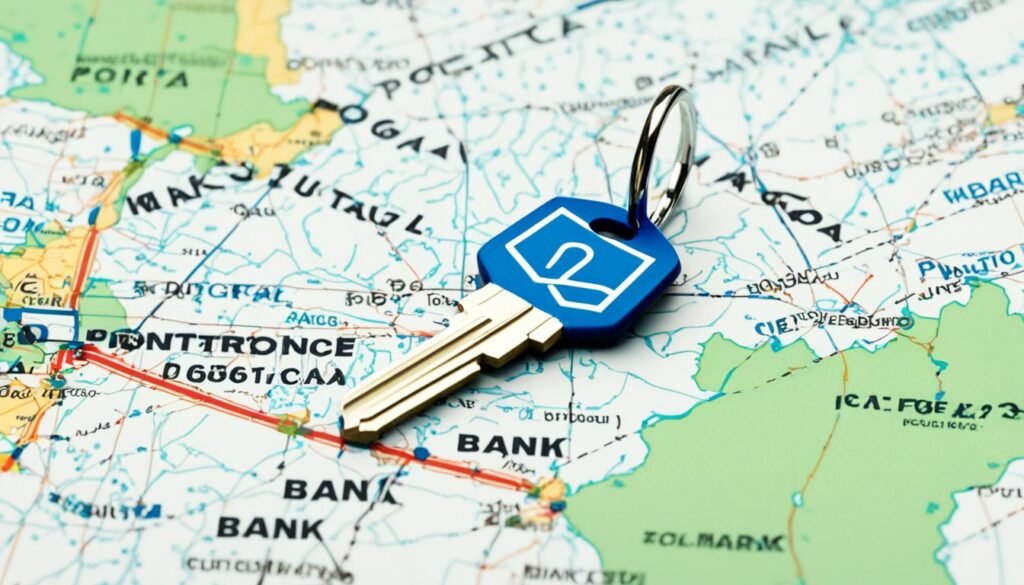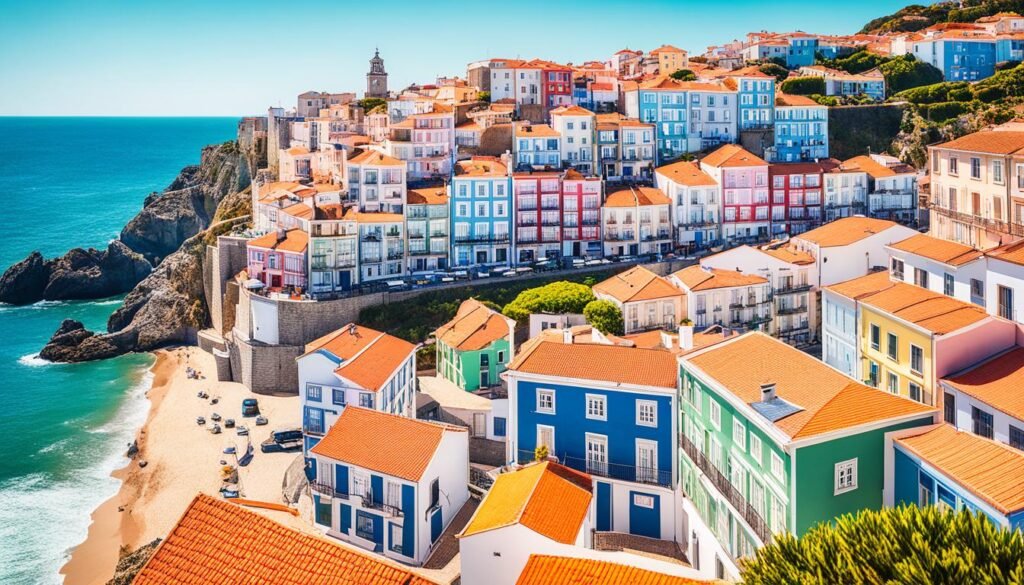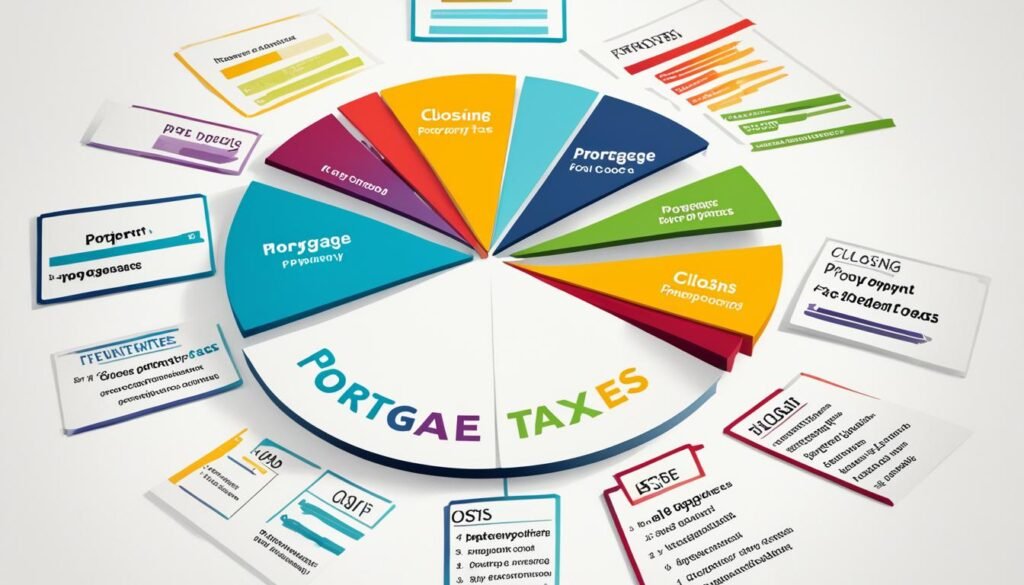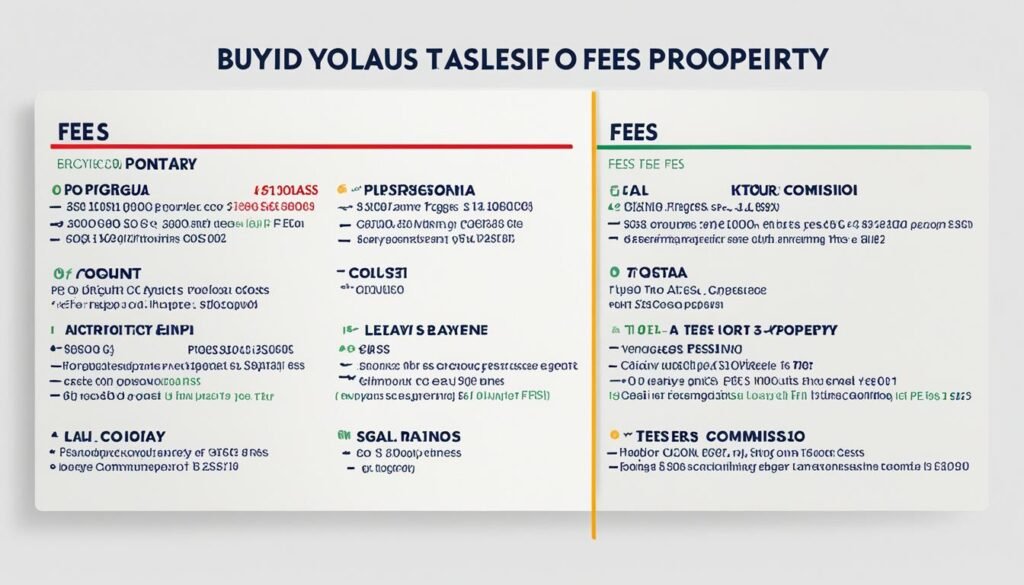Embarking on the journey of financing property in Portugal is a path fraught with promise and excitement, particularly for those drawn to the allure of its rich cultural tapestry and prime investment climate. Whether you’re an investor seeking lucrative Portugal property investment loans or a dreamer aiming to make a slice of Mediterranean paradise your own, understanding the intricacies of property financing options in this vibrant nation is crucial. With the average property price in Lisbon standing at an attractive EUR €626,442.91 and the Algarve’s enticing coastal offerings averaging at EUR €838,791.71, there’s a spectrum of opportunities waiting to be explored.
Securing the keys to your future abode or investment demands more than just a longing for warm Portuguese shores; it necessitates a competent grasp on real estate loans Portugal has to offer, the competitive mortgage rates Portugal promises, and the trusted property financing companies Portugal boasts. For those pondering on buying property in Portugal financing options abound, catering to a wide range of fiscal considerations and lifestyle aspirations. Join us as we unveil the essentials of finance for buying property in Portugal, navigating you through the tranquil waters of successful property acquisition.
Key Takeaways
- Navigating financing options with an understanding of regional market trends is paramount.
- Lisbon offers average property sizes of 49.4 m² with the potential for urban charm1.
- The Algarve region presents expansive properties averaging 18,866.9 m² for those seeking more space1.
- Engaging with adept mortgage lenders in Portugal paves the way for tailored investment strategies.
- Discerning the value proposition of varied mortgage rates can lead to astute financial decision-making.
- Considering the property financing landscape in Portugal allows for strategic long-term planning.
- Investment opportunities are plentiful, with options for a vast range of personal preferences and budgets.
Understanding the Portuguese Property Market Trends
As the tapestry of the Portuguese property market unfolds, investors and homebuyers find themselves amidst a vibrant landscape characterized by its ebb and flow. The latest data signals a dynamic market, with trends suggesting a nuanced understanding that transcends mere price considerations.
At the vanguard of these trends stands the Lisbon real estate market, a shining beacon for its blend of historical charm and modern vibrancy. In January 2024, rental costs across Portugal edged upwards by 1.8%, perpetuating Lisbon’s reign as the apex of rental expense within the country2. The allure of metropolitan life continues to drive demand in this area, fortifying its position within the Portuguese real estate sector.
Lisbon’s Real Estate Boom: A Closer Look
Lisbon’s real estate boom is not without complexity. While the Mais Habitação program commenced in October, aimed at proliferating rental housing stock to remedy scarcity, the efforts have seen the number of available properties for rent in Portugal eager for occupants, spiking dramatically by 55% during the tail end of 2023 compared to the preceding year2. DBRS Morningstar analysts substantiate this with a cautious optimism, highlighting a housing shortage, robust employment, and net migration growth as buffers against a precipitous drop in housing values2.
Price Per Square Meter: Regional Variations
Regional variations in property prices elicit distinct narratives across the nation’s landscape. Amid the boisterous rental jumps in Leiria, contrasting tales of descension protrude in Évora and Aveiro, sketching a multifaceted picture of the Portuguese market2. These variations underscore the necessity for a keen eye when analyzing the investment opportunities in Portugal real estate, where geographies dance to different economic rhythms.
Investment Potential in Portugal’s Real Estate
As discerning investors gaze upon Portugal’s horizons, they are greeted with a mélange of potentialities. Reports from the ground caution against a robustly overvalued market, as declared by authorities in Brussels, while DBRS concurrently acknowledges that current prices could be brushing against their zenith2. This dichotomy paints a picture of an environment ripe with opportunity yet requires a measured approach, leveraging a deep understanding of property prices in Portugal.
Amidst this backdrop, the Portuguese banks posture with prudence, necessitating up to a 30% property value deposit for financing, while the additional entry costs—legal, stamp duty, and registration fees—stand vigil on the sidelines of any real estate transaction3. Non-residents, eager to dip into this market, anticipate their share of taxes, be it from rental yields or capital gain harvests, demanding a well-rounded grasp of the evolving and vastly diverse real estate mart in Portugal.
The art of reconnaissance in different regions, property typologies, and pricing cadres becomes quintessential in decisions of acquisition, as does the grasping of Portugal’s legal process for property procurement3. Options to finance such ventures sprawl before prospective buyers, including sourcing funds from their native soils or partnering with specialized lenders acclimated to the needs of non-resident investors.
Thus, as eyes turn towards the investment opportunities in Portugal real estate, it becomes evident that a holistic vantage point, informed by statistical keenness and an embrace of market trends, is indispensable for fortifying one’s position in this vibrantly undulating arena.
Eligibility for Non-Residents: Financing Property in Portugal
Portugal presents a welcoming investment landscape for non-residents, displaying a robust housing market where foreigners spent more than double the amount on properties compared to Portuguese nationals in the last quarter of 20214. This demonstrates the high interest and confidence in buying property in Portugal as a foreigner, further bolstered by the fact that Portugal has a high rate of homeownership, standing at 78%, which outstrips the EU average4.
A testament to the burgeoning market, mortgage lending has surged, with the outstanding mortgage balance reaching 99 billion in 2022, a reflection of the 38% of residents who currently hold a mortgage—figures surpassing EU norms4. Non-residents eyeing up these opportunities, however, must navigate distinct eligibility criteria. While financing property in Portugal for non-residents is possible without undue restrictions, securing residency can streamline the process notably.
For foreigners, the portion of the property value that can be borrowed typically ranges between 60-70%, with Portuguese residents having a slightly higher borrowing capacity of 80-90%4. Mortgage options cater adeptly to diverse needs; for instance, terms often span 25 years with the principal to be repaid by 70, 75, or even 80 years of age4. Foreign buyer mortgage options are diverse, including specialized solutions like buy-to-rent and business property mortgages, which, respectively, may necessitate deposits up to 40% and at least 50% of the property value, along with proof of income or a robust business plan4.
The mortgage eligibility for non-residents is also shaped by mortgage rates, which in Portugal swing from 1% to 8%. This variance is attributed to numerous factors, such as the property’s worth, the scale of the deposit, the borrower’s financial history, and the mortgage type, all anchored ultimately to the Euribor rate4.
Indeed, Portugal’s allure for property investors is unmistakable—whether seeking a new home or rental income through buy-to-rent. The data paints a promising picture, with systemic supports in place to aid non-resident investors in finding their footing in this sunny, sea-bordered nation.
Benefits of Securing a Mortgage in Portugal
Navigating the landscape of property investment, prospective buyers are often intrigued by the benefits of mortgage in Portugal. With an attractive climate for borrowing, Portugal presents a golden opportunity for those looking to secure a home or investment property with favorable financial conditions.
Moderate Interest Rates for Optimal Investment
The interest rates in Portuguese mortgages are known for their moderation, which spells out affordability and appeal for investors and homebuyers alike. Banks, serving as the conventional facilitators of real estate financing, alongside the rising presence of direct lenders, establish a competitive market ensuring that borrowers can avail themselves of agreeable terms5. Additionally, the cap on default interest at a maximum annual surcharge of 3% allows for a controlled and predictable cost in the event of arrears5.

Legal Due Diligence and Property Valuation Advantages
Entering a mortgage agreement in Portugal inherently comes with rigorous legal due diligence in property purchase. Protected by law, mortgages must be crafted through a notarial deed and duly registered at the Land Registry, an assurance of legal safeguarding and clarity5. The valuation process, governed by real estate appraisers regulated by the Portuguese Securities Exchange Commission, further corroborates the security and accuracy of the investment5.
Rental Income Opportunities and No Currency Risk
For those eyeing rental yields, rental income potential in Portugal stands out as a compelling facet of the property landscape. Financed properties are not constrained by currency exchange volatilities, thus bypassing currency risk in Portuguese property investment. This advantage stems from Portugal’s membership in the Eurozone, which offers stability and predictability for rental income streams5.
The structured approach of the Banco de Portugal in overseeing lending activities ensures that all operational rules are meticulously followed, thus maintaining a stable and trustworthy environment for property investors5. Additionally, the non-existence of usury limitations on financing agreements by credit institutions and the inability of mortgage creditors to appropriate mortgaged assets offer a safeguarded scenario for borrowers5.
In the event of default, the process is managed through enforcement proceedings, which in Portugal last on average between 18 to 36 months — aligning with the commitment to due process and borrower protection. Moreover, lenders possess the right to recover any monetary deficiencies resulting from foreclosure, without limitations on calculation, exemplifying the thorough and equitable financial landscape5.
Mortgage Options in Portugal: A Comprehensive Overview
Exploring mortgage options in Portugal reveals a spectrum of possibilities designed to accommodate diverse financial scenarios. Particularly noteworthy are fixed-rate mortgages and variable-rate mortgages, each catering to distinct preferences for stability and flexibility, respectively. Fixed-rate mortgages offer the reassurance of unchanged monthly payments, pivotal for those who prioritize budgeting consistency over the loan period. In contrast, variable-rate mortgages track the Euribor rate, which can result in fluctuating payments but may provide interest savings when rates are low.
Mortgages for retirees in Portugal present opportunities for individuals seeking a tranquil retirement. These specialized loans consider the unique income streams of retirees, such as pensions, and are calibrated to offer reasonable terms that align with the retirement lifestyle. Concurrently, mortgages for businesses serve the entrepreneurial community, offering tailored finance solutions for commercial property investments and operations—a critical resource for sustaining and expanding business activities within the region.
When determining loan eligibility, Portuguese lenders generally offer loans between 60% to 80% of the purchase or valuation price6 and mandate a minimum deposit of 20% of the property’s purchase price6. Additionally, foreigners considering the acquisition of Portuguese real estate can expect a Loan to Value (LTV) that ranges between 60-70%6. The mortgage process requires an array of supporting documents, including passport copies, tax numbers, and proof of income from various sources such as rental, salary, and pension6. Advice from a mortgage specialist is highly recommended to navigate these intricacies and optimize the financing experience6.
Furthermore, the cost implications of purchasing property in Portugal are significant and must be closely examined. The Property Purchase Tax (IMT) and Stamp Duty are just some of the obligatory taxes, which vary based on factors including property value and location7. Municipal Property Tax (IMI) also plays a role in ongoing property expenses, being contingent on the property’s registry7.
| Type of Mortgage | Typical LTV | Interest Rate Starting From | Required Documents | Recommended For |
|---|---|---|---|---|
| Fixed-Rate | 60%-80% | 1.70%-2.50% | Credit report, proof of income | Long-term stability seekers |
| Variable-Rate | 60%-80% | ~6% | Bank statements, tax return | Risk-tolerant investors |
| Retiree Mortgages | 60%-70% | Varies | Pension statements, tenancy agreements | Retirees |
| Business Mortgages | Based on business credit | Varies | Business financial statements | Entrepreneurs, companies |
It is imperative to recognize that property valuation by an independent engineer constitutes a cornerstone of the Portuguese mortgage application6. This assists in determining fair market value, safeguarding both the lender and the borrower. Cultivating awareness of the various types of mortgages in Portugal and the accompanying requirements is crucial for making informed decisions aligning with personal or business financial strategies.

In conclusion, whether you’re drawn to the allure of the Azores for their rental potential and government incentives7, or you’re a retiree considering your sunset years amidst Portugal’s serene beauty, a comprehensive understanding of your mortgage options ensures you approach the property ladder with confidence and clarity. With proper guidance and a thorough examination of your financial circumstances, the dream of owning a piece of Portuguese paradise is well within reach.
Key Financial Considerations When Buying Portuguese Property
Securing property in Portugal is a multidimensional decision, where understanding the inherent financial considerations is essential. To navigate this landscape effectively, potential buyers must grasp the nuances of fundamental financial elements, such as loan-to-value (LTV) ratios, mortgage rates, and the variety of interest rate options available.

For many, financing property purchases in Portugal often begins with understanding the role of banks and direct lenders5. Investors are likely to encounter a range of mortgage products, with the option to back loans through a pledge over shares or quotas representing the share capital—showcasing the depth of financing options available for real estate projects in this dynamic market.
The Impact of Loan-to-Value (LTV) Ratios on Your Mortgage
One of the primary financial considerations for buying property in Portugal is the LTV ratio. This figure significantly influences the terms of your mortgage and the amount that can be borrowed, often dictating the feasibility of a property investment5. Factoring in the LTV ratio is critical as it layers onto the cost of acquiring your desired property.
Current Mortgage Rates and Trends in Portugal
Another pivotal aspect to bear in mind is mortgage rates in Portugal. These rates are based on several market dynamics including the EURIBOR and other economic indicators, with lenders negotiating spreads based on various factors5. Keeping abreast of the latest rates and trends ensures that buyers secure the most favorable financing conditions.
Exploring Fixed-Rate Versus Variable-Rate Mortgage Options
When it comes to interest rates, borrowers in Portugal can choose between variable, fixed, or mixed rates. Each choice presents its advantages depending on market conditions and personal financial strategies. Fixed-rate vs variable-rate mortgages in Portugal vary, often centered around their relation to the EURIBOR plus the individually negotiated lender spread5. While fixed-rate offers consistency over time, variable rates can potentially lead to lower payments when market rates decrease.
| Interest Type | Features | Considerations |
|---|---|---|
| Fixed-Rate | Stability of payments | Possible higher initial rates |
| Variable-Rate | Linked to market trends | Fluctuations may increase risk |
| Mixed-Rate | Combines features of both | Complexity in rate adjustment |
Furthermore, should defaults occur, understanding the enforcement proceedings for a judicial sale of the asset becomes relevant. The process in Portugal typically spans 18 to 36 months and may lead to deficiency judgments against borrowers—not a trivial detail for those considering a mortgage in this jurisdiction5.
With these points in mind, astute financial planning and analysis become paramount in the journey of property acquisition in Portugal. Prospective buyers are advised to diligently consider these factors to align their property aspirations with financial realities.
Property Acquisition Costs and Fees in Portugal
Understanding the property acquisition costs in Portugal is critical for any prospective buyer. These costs go beyond the price tag of your desired property; they accumulate from various fees and taxes imposed during the buying process. Let’s delve into the expenses that are likely to influence your budgeting plan when acquiring Portuguese real estate.
Firstly, it’s crucial to factor in the taxes for property purchase in Portugal. The Property Transfer Tax, known locally as IMT (Imposto Municipal sobre Transmissões), ranges from 2% to 8% of the property price8. Additionally, the Stamp Duty (Imposto de Selo) is calculated at 0.8% of the property value8. Therefore, overlooking these taxes can lead to significant underestimation of the overall costs involved in your property acquisition.
Legal intricacies of purchasing property bring about another layer of expenditure, consisting of notary fees and legal fees. Notary, registry, and tax office fees for property deeds are typically around the €1,200 mark8. Legal fees, on the other hand, which cover the services of a lawyer to conduct due diligence and ensure legal compliance, are estimated to be about €1,8008.
| Cost Type | Amount |
|---|---|
| Fixed Application Fee (Mortgage) | €290 |
| Bank Valuation Fee | €280 |
| Stamp Duty Tax (IMI – Mortgage) | 0.6% of mortgage amount |
| Notary/Registry/Tax Office Fees (Mortgage Deeds) | €1,200 |
| Estimated Legal Fees (Transaction) | €1,800 |
Moreover, when taking out a mortgage in Portugal, you’re confronted with a set of specific costs: an application fee of €2908, bank valuation fee pegged at €2808, along with the aforementioned Stamp Duty Tax for the mortgage and notary fees. These can significantly inflate the initial budget if not anticipated.

The mortgage itself must be carefully contemplated. Variable mortgage rates start from an attractive 3.3% per annum, based on a 30% LTV ratio8, while fixed rates for up to five years can be locked in at around 4.1%, given an LTV of up to 70%8. For non-residents, typically, Portuguese mortgages cover 60-70% of the valuation price, demanding a substantial minimum deposit — at least 30% of the property’s purchase price8.
It’s worth noting that property acquisition costs in Portugal can represent a significant portion of the overall investment, making it essential to account for every detail in your financial planning.
With a keen understanding of the fees for buying property in Portugal, including notary and legal services, along with the various taxes, prospective buyers can approach the market with a clear, unobstructed vision of the financial landscape before them. Remember, meticulous preparation is the key to a smooth and successful property acquisition.
Navigating the Mortgage Application Process in Portugal
Embarking on the mortgage application process in Portugal is a strategic step towards securing your dream property. Understanding the intricacies of initial assessments, pre-approvals, and efficient documentation handling ensures a smooth experience in achieving your real estate aspirations.
Initial Assessments and Pre-Approvals
The journey to homeownership in Portugal begins with comprehensive initial assessments for mortgage suitability. By scrutinizing your financial health, lenders can provide pre-approvals for mortgage, signifying your borrowing capabilities and fortifying your position as a serious buyer.
The Importance of Early Application and Bank Comparisons
An early mortgage application underscores the importance of early application due to the competitive nature of the Portuguese property market. Simultaneously, conducting bank comparisons for mortgage options affords you the leverage to secure favorable terms that align with your financial posture.
Understanding the Documentation Required for Financing
Compiling the documentation required for financing in Portugal is a critical step that necessitates meticulous attention to detail. Banks demand a comprehensive dossier to assess your credibility, encompassing proof of income, assets, and credit history, among other requisites.
- Performing due diligence and studying market dynamics, as demonstrated by the Brownings, who rented in Lisbon to understand the local real estate before buying on Portugal’s silver coast9.
- Maximizing your savings potential, similar to the Brownings who allocated as much as 70% of their income towards savings and investments, diligently utilizing high-yield savings and money market accounts for robust returns9.
By integrating strategies like these into your financial plan, you can approach the mortgage application process with a strong foundation and a clearer understanding of what it takes to secure favorable financing conditions in Portugal.
| Key Aspects of the Mortgage Application | Details |
|---|---|
| Initial Assessments | Evaluating your financial status and potential loan amount |
| Bank Comparisons | Analyzing multiple mortgage offers for the best rates and terms |
| Documentation | Gathering requisite paperwork like proof of income and credit history |
| Pre-Approval Stage | Obtaining a preliminary agreement from a lender to strengthen your buying position |
Throughout the process, remember that properties like the Browning’s dream home can sometimes be procured at a negotiated price well below the initial asking rate, emphasizing the significance of financial readiness and strategic planning9.
Conclusion
In wrapping up this exploration into financing property in Portugal, what stands clear is that both residents and non-residents are privy to a multifaceted, yet accessible marketplace. The voyage through the intricacies of the Portuguese property financing landscape has yielded valuable insights. From economic shifts, which saw the Portuguese economy contract by 7.6% in 202010, to the resilience in the real estate sector, underscored by a steady banking industry which continues to revitalize its capital structures10, the narrative of opportunity remains compelling. Amidst this backdrop, investors are met with favorable conditions like the advised monthly expense limit which safeguards affordability, constituting 30 to 35 percent of one’s net monthly income for securing a mortgage11.
Through our summary of financing property in Portugal, it is evident that the country’s recovery roadmaps, such as the anticipated €14 billion in EU grants aligned with its Recovery and Resilience Plan, will act as economic catalysts10. Moreover, the lending landscape, renowned for competitive loan-to-value ratios offered by reputable financial institutions like Novobanco, CGD, and Millennium BCP, ensures investors are well-positioned to capitalize on variable-rate and fixed-rate mortgages, with spreads and interest rates fashioned to meet diverse financial needs and profiles11.
Finally, as we close this guide, the horizon of financing property in Portugal is not solely marked by attractive mortgage rates or investment potential; it is equally about navigating the clarity of the process, the calculable costs, and the robust regulatory environment. Indeed, the depth of financial considerations, the variety of mortgage options, and the thorough identification of costs and fees culminate into a road map which promises to guide prospective buyers towards making astute, informed decisions in this vibrant real estate environment.
FAQ
What are the benefits of securing a mortgage in Portugal?
Securing a mortgage in Portugal offers benefits such as moderate interest rates, legal due diligence, property valuation, and the possibility of generating rental income without currency risk.
What types of mortgages are available in Portugal?
There are various mortgage options in Portugal, including fixed-rate mortgages, variable-rate mortgages, mortgages for retirees, and mortgages for businesses.
What financial considerations should I keep in mind when buying property in Portugal?
Key financial considerations include understanding the impact of loan-to-value (LTV) ratios, staying informed about current mortgage rates and trends, and choosing between fixed-rate and variable-rate mortgages.
What costs and fees are associated with acquiring a property in Portugal?
Acquiring a property in Portugal involves costs such as property acquisition taxes, notary fees, and legal fees.
How do I navigate the mortgage application process in Portugal?
Navigating the mortgage application process in Portugal involves initial assessments, pre-approvals, applying early, comparing different banks, and understanding the required documentation.
Source Links
- https://www.realtor.com/international/portugal/
- https://www.linkedin.com/pulse/decoding-portugals-real-estate-landscape-trends-dq21f
- https://www.theportugalnews.com/news/2023-02-24/what-you-should-know-about-the-portuguese-real-estate-market/75102
- https://www.expatica.com/pt/housing/buying/mortgages-in-portugal-758275/
- https://www.lexology.com/library/detail.aspx?g=9a927a9e-ffa7-4a66-83c0-cf43154a97ef
- https://www.expertsforexpats.com/country/other/portugal/portugal-mortgage/
- https://www.lawyers-portugal.com/purchase-a-property-in-portugal
- https://www.globalcitizensolutions.com/mortgages-foreigners-portugal/
- https://www.cnbc.com/select/saving-to-buy-property-abroad/
- https://www.state.gov/reports/2021-investment-climate-statements/portugal/
- https://www.movingto.io/pt/best-mortgage-lenders-in-portugal
Comments